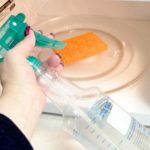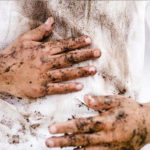Thanks to advanced technology, cleaning chemicals have evolved and helped many families save time with household chores. However, if you don’t use these chemicals properly, you can easily damage some of your belongings, especially the precious and expensive ones. Today, we will reveal 13 tips for using cleaning products safely and avoiding damage to your possessions. Let’s get started!
1 Dilute Dish Soap Before Use
For a family of 3-4 people, you only need 1-2 drops of dish soap per meal, diluted with water, creating suds, and then start washing. This helps you save money and ensures that the chemicals are rinsed off and don’t leave a residue on your dishes.
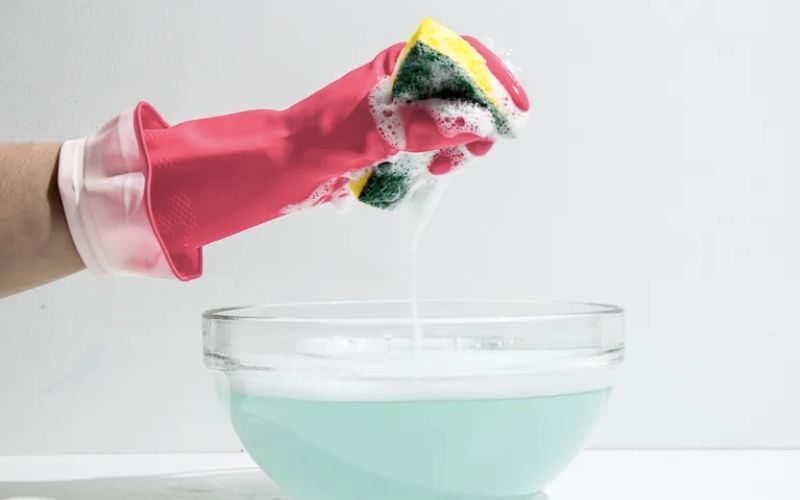 Dilute dish soap before use
Dilute dish soap before use
2 Avoid Using Chlorine-Based Cleaners on Metal Surfaces
Metal and glazed ceramic surfaces can develop stains and discoloration when exposed to chlorine. Depending on the material, you can choose a suitable specialized cleaning solution to better maintain your items.
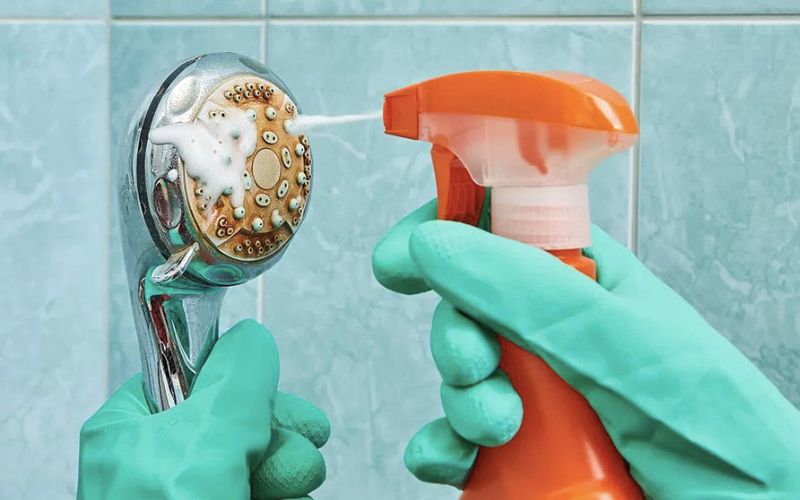 Don’t use chlorine-based solutions on metal surfaces
Don’t use chlorine-based solutions on metal surfaces
3 Read Furniture Polish Instructions Carefully
There are two main types of furniture polishes: oil-based and water-based emulsions. However, oil-based polishes can cause the furniture surface to turn yellow over time.
Note: Do not use furniture polish on laminate surfaces. Applying oil or wax-based polishes to laminate can make it more susceptible to dust and damage the protective outer layer.
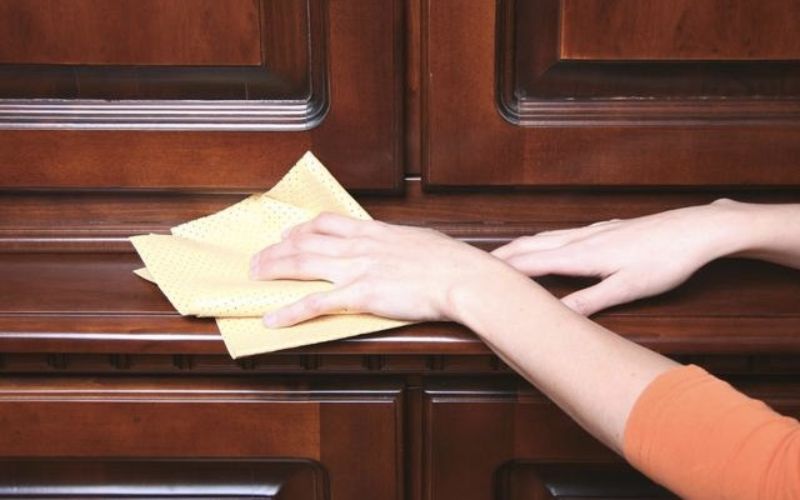 Read furniture polish instructions carefully
Read furniture polish instructions carefully
4 Don’t Mix Cleaning Chemicals with Hot Water
Cleaning chemicals are usually not compatible with hot water. High temperatures can neutralize their disinfecting properties and diminish their cleaning power. Therefore, it is best to combine these chemicals with cold or warm water to optimize their cleaning effectiveness.
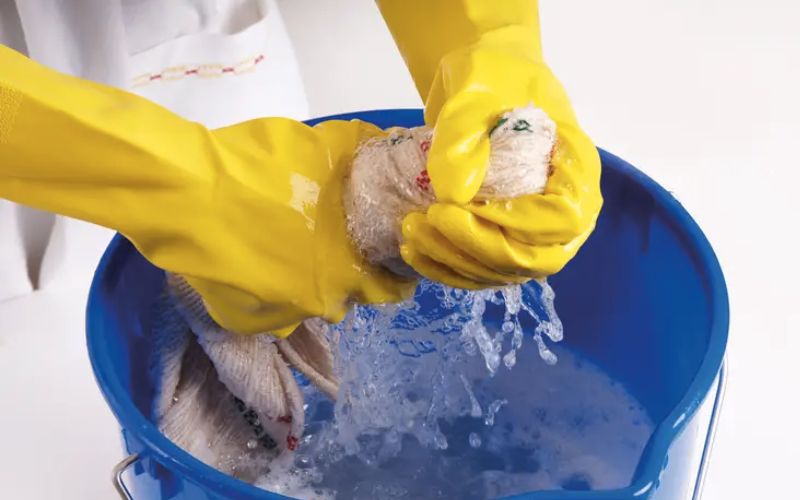 Don’t mix cleaning chemicals with hot water
Don’t mix cleaning chemicals with hot water
5 Don’t Stockpile Chlorine-Based Cleaning Products
While most cleaning products have a long shelf life, chlorine-based chemicals should not be stored for extended periods as they lose their disinfecting properties and become less effective at cleaning surfaces.
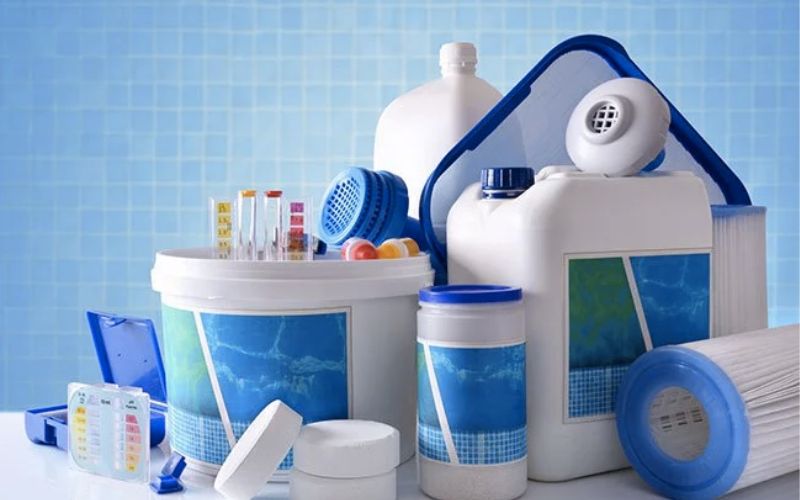 Don’t stockpile chlorine-based cleaning products
Don’t stockpile chlorine-based cleaning products
6 Antibacterial Wipes Can Damage Leather
The chemicals in antibacterial wipes can cause the natural oils in leather to evaporate, leading to dryness, stiffness, and cracking over time. These wipes can also negatively affect the natural luster of wooden surfaces.
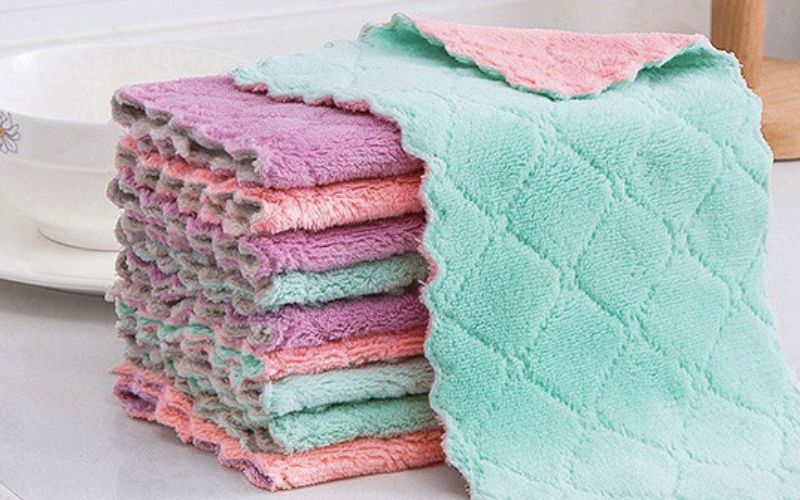 Antibacterial wipes can damage leather
Antibacterial wipes can damage leather
7 Avoid Using Dish Soap to Clean Carpet Stains
While dish soap is known for its strong cleaning properties, it is not effective for removing stains from carpets. The soap can leave a residue in the carpet fibers, making it sticky and more prone to attracting dirt.
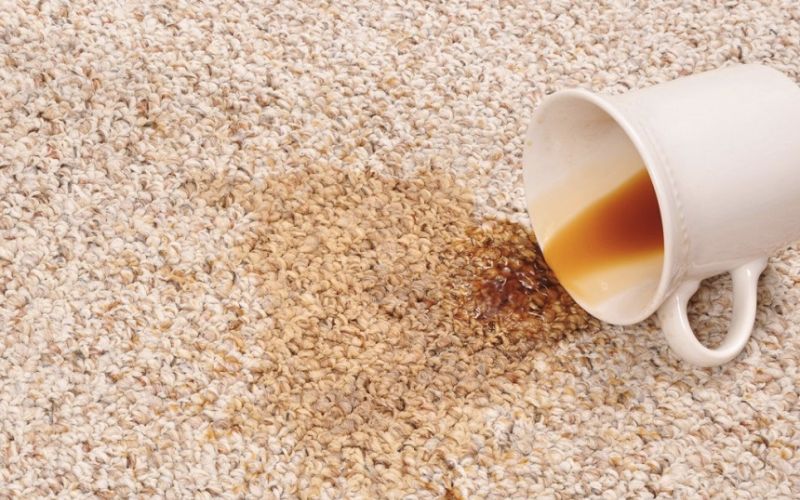 Avoid using dish soap to clean carpet stains
Avoid using dish soap to clean carpet stains
8 Limit the Use of Cleaning Chemicals on Delicate Surfaces
Consider the material of your belongings before using cleaning chemicals. Some strong cleaning agents can damage delicate surfaces like marble and wooden furniture. Test the solution on a small area first to check for any discoloration.
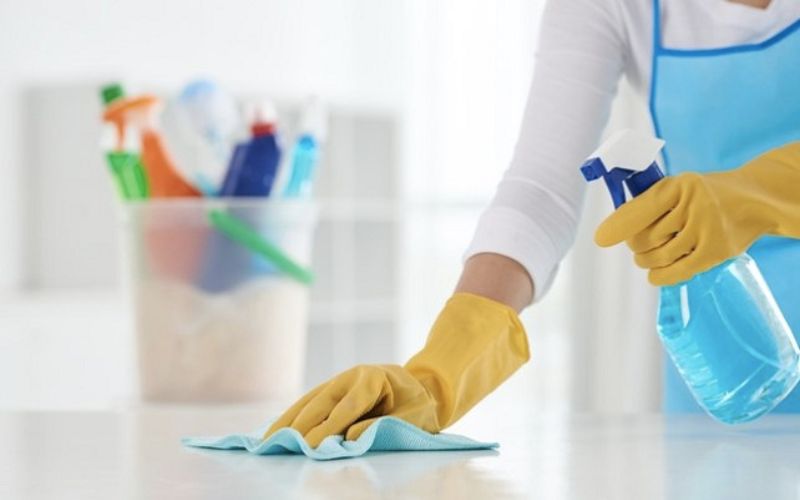 Limit the use of cleaning chemicals on delicate surfaces
Limit the use of cleaning chemicals on delicate surfaces
9 Minimize the Use of Scented Cleaning Products
Many cleaning products on the market now feature appealing fragrances, some of which are created using phthalates, which can be harmful to children and pregnant women, according to research from Harvard University.
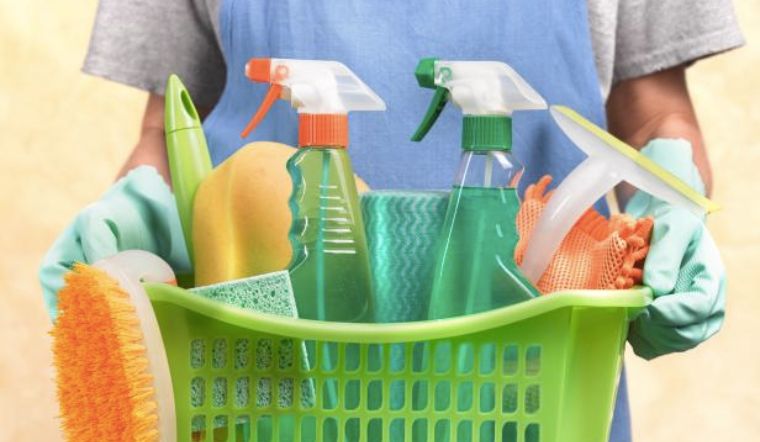 Minimize the use of scented cleaning products
Minimize the use of scented cleaning products
10 Enzyme-Based Detergents Are Not Suitable for Wool or Silk
Enzyme-based detergents cannot differentiate between proteins in stains and those in wool and silk fibers. Using these products to wash wool or silk can damage the fabric and reduce its durability.
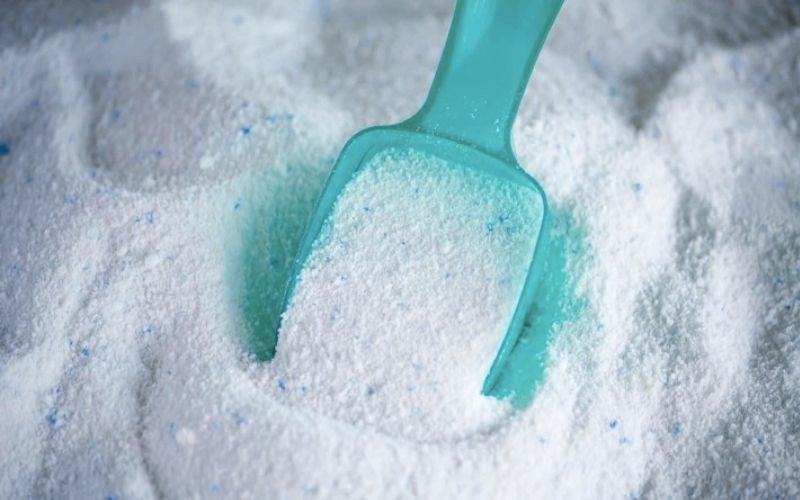 Enzyme-based detergents are not suitable for wool or silk
Enzyme-based detergents are not suitable for wool or silk
11 Avoid Using Glass Cleaner on Wooden Surfaces
Glass cleaners can damage the finish and varnish of wooden furniture. Instead, use a mixture of white vinegar and oil to effectively remove stains and bring back the shine to your wooden surfaces.
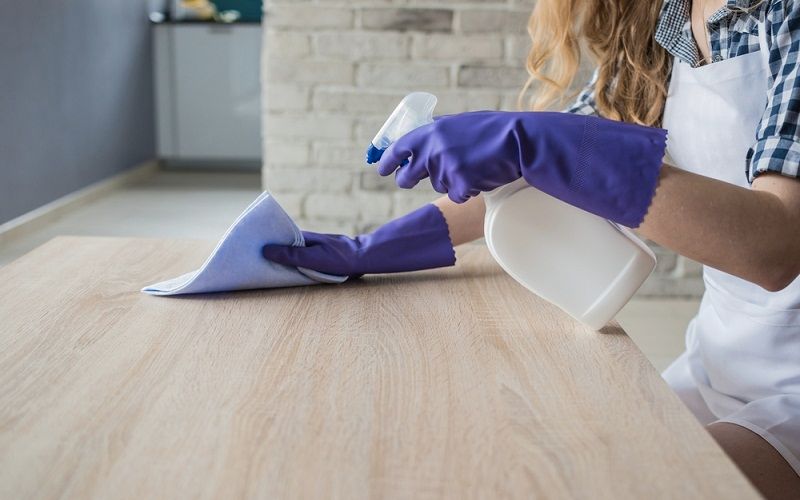 Avoid using glass cleaner on wooden surfaces
Avoid using glass cleaner on wooden surfaces
12 Use the Right Amount of Cleaning Chemicals
Using more cleaning chemicals doesn’t necessarily mean better or faster stain removal. In fact, it can lead to the opposite result. When chemicals are left on surfaces for too long, they create an environment conducive to bacterial growth. It is best to choose the right type of cleaning product and use the recommended amount.
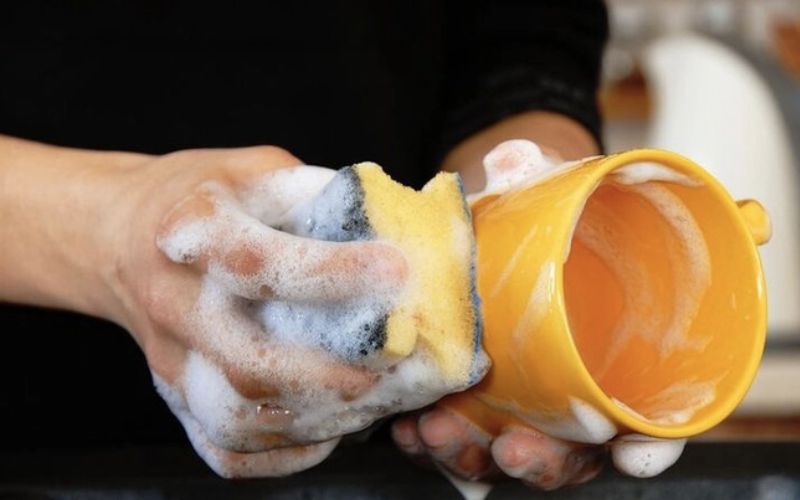 Use the right amount of cleaning chemicals
Use the right amount of cleaning chemicals
13 Don’t Mix Your Own Cleaning Chemicals
Mixing your own cleaning chemicals can be dangerous. Combining incompatible substances can create unpleasant odors, harm your respiratory system, reduce your vision, and even cause dizziness. Always read the instructions and warnings on the labels to avoid potential health risks.
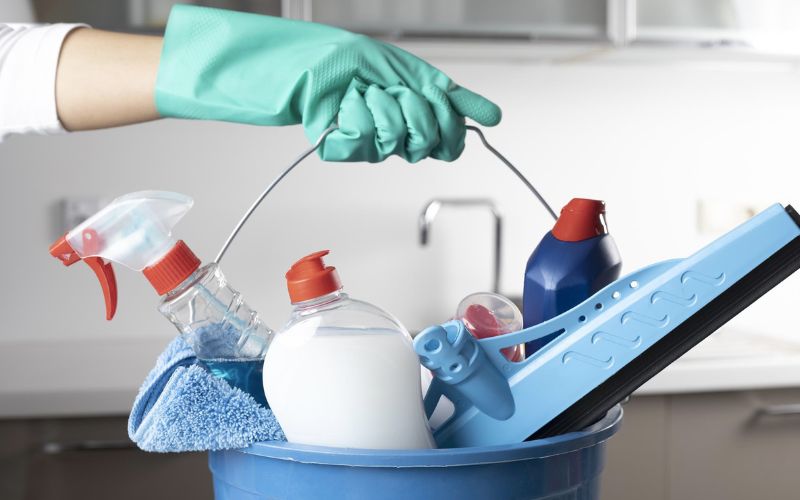 Don’t mix your own cleaning chemicals
Don’t mix your own cleaning chemicals
Now you have 13 valuable tips for using cleaning products safely and effectively. Give them a try and share your experiences with us! Thank you for reading!

























